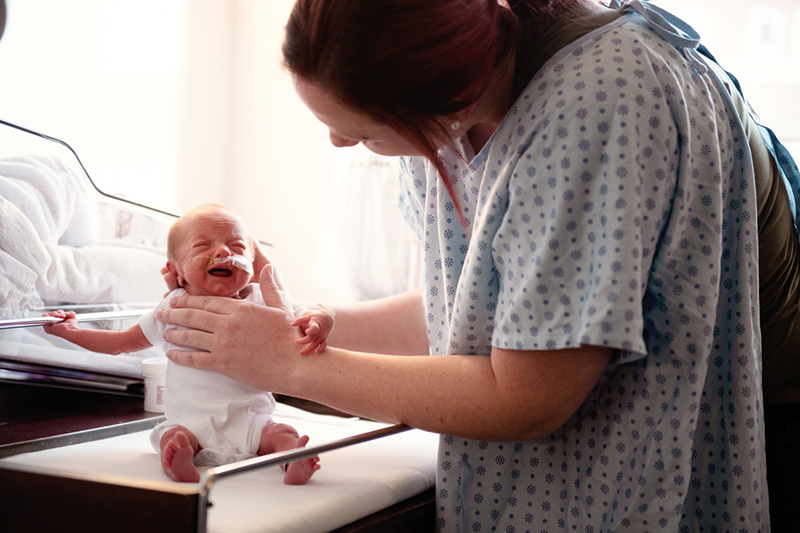Findings may have implications for labor induced without medical need

The earlier in pregnancy infants were born, the more likely they were to fail a screening test for developmental delay by age 3, according to a study by researchers at the National Institutes of Health and other institutions. Although infants born at 39 weeks, considered full term, had a lower risk than those born earlier, infants born at 40 and 41 weeks had even lower risks. The findings may have implications for elective induction—labor induced when there is no medical need—at 39 weeks.
The study could not confirm whether children who failed a developmental screen ultimately received a diagnosis of developmental delay. However, the earlier in pregnancy children were born, the more likely they were to require early childhood intervention services, a potential indication of developmental delay.
The researchers were led by Edwina Yeung, Ph.D., senior investigator in the Epidemiology Branch of NIH’s Eunice Kennedy Shriver National Institute of Child Health and Human Development (NICHD). The study appears in the American Journal of Perinatology.
Background
Previous studies on preterm birth and developmental delays have focused on extremely preterm birth, or birth before 32 weeks. Few studies have looked at risks for developmental delays for births between weeks 32 and 39 of pregnancy and for infants born at 40 to 41 weeks.
In 2018, an NICHD-funded study of more than 6,000 healthy, first-time mothers found that women whose labor was induced in the 39th week were less likely to deliver by cesarean section than those who waited for labor to begin naturally. The rate of pregnancy-related blood pressure disorders was also lower in the women whose labor was induced. The researchers found no significant differences between the two groups in a composite measure that included death of the baby during or after birth; the newborn’s need for respiratory support; seizure, infection, birth trauma (injury) or hemorrhage; and other birth complications.
The researchers conducted the current study to assess potential risks for developmental delay for infants born after 32 weeks. They examined data of nearly 6,000 children in the Upstate KIDS study, which previously compared the growth and development of children in New York state conceived through assistive reproductive technology to that of children conceived without any infertility treatment. Children were evaluated with the Ages and Stages Questionnaire, a screening measure that evaluates five areas of child development: fine motor skills, gross motor skills, communication, personal-social functioning, and problem-solving ability. Mothers completed the questionnaire periodically from 4 to 36 months of age. The researchers also assessed whether a child received developmental services in the state’s Early Intervention Program.
Results
Compared to children born at 39 weeks, children born before 32 weeks were more than 5 times more likely to have failed a developmental domain by age 3. Domain failures were more than twice as likely for children born at 32 to 34 weeks, 38% more likely for those born at 35 to 36 weeks, and 29% more likely for those born at 38 weeks. However, when compared to children born at 39 weeks, children born at 40 weeks were 27% less likely to fail a domain. Children born at 41 weeks nearly half as likely.
Similarly, children born before 39 weeks were more likely than those born at 39 weeks to have received developmental services: four times more likely for children born before 32 weeks and twice as likely for children born at 32 to 34 weeks. In contrast, children born at 40 weeks were 8% less likely to have received developmental services. Children born at 41 weeks were 22 percent less likely.
Significance
Previous studies have shown that brain weight increases with the duration of pregnancy. The authors theorized that early birth may affect brain development. They added that, given the potential risks of developmental delays, their findings suggest that births induced for non-medical reasons should be avoided.
Reference
Hochstedler, KA, et al. Gestational age at birth and risk of developmental delay: The Upstate KIDS Study American Journal of Perinatology. 2020.

 BACK TO TOP
BACK TO TOP